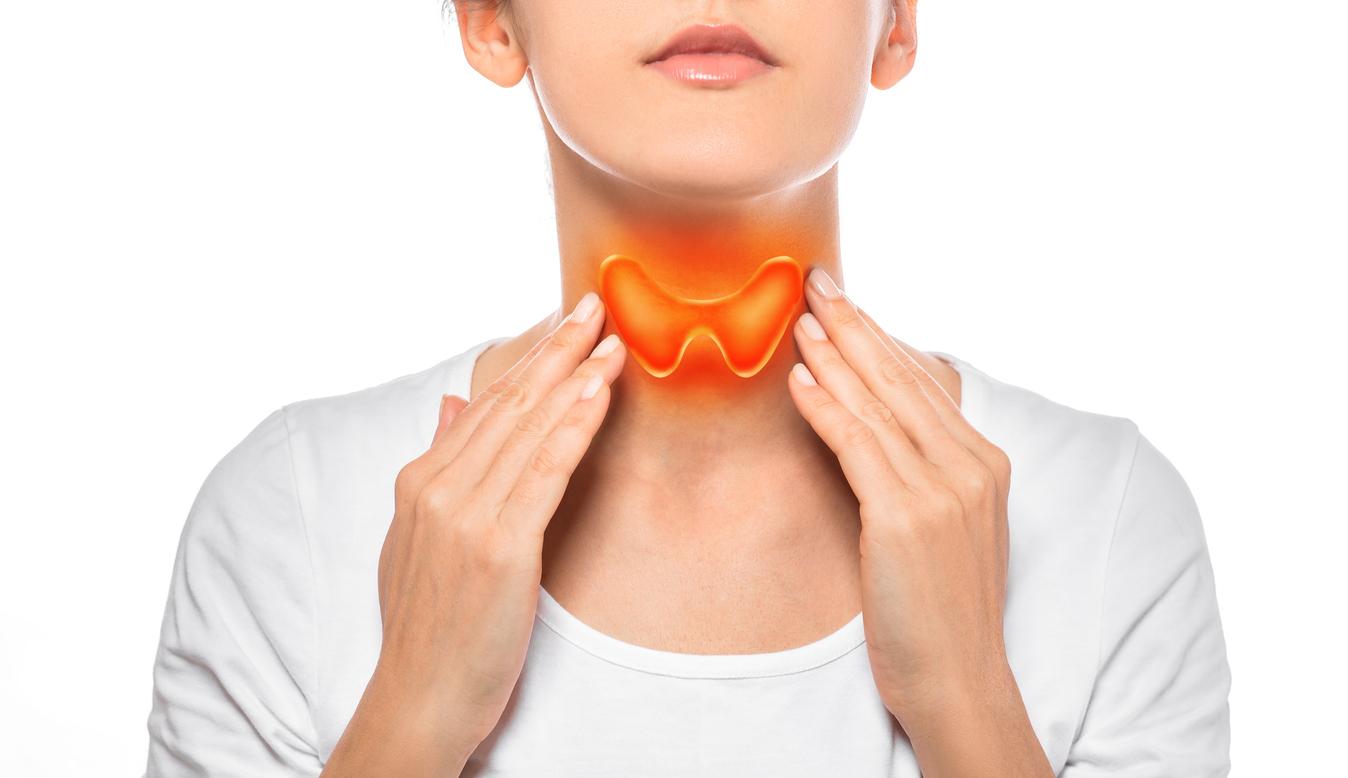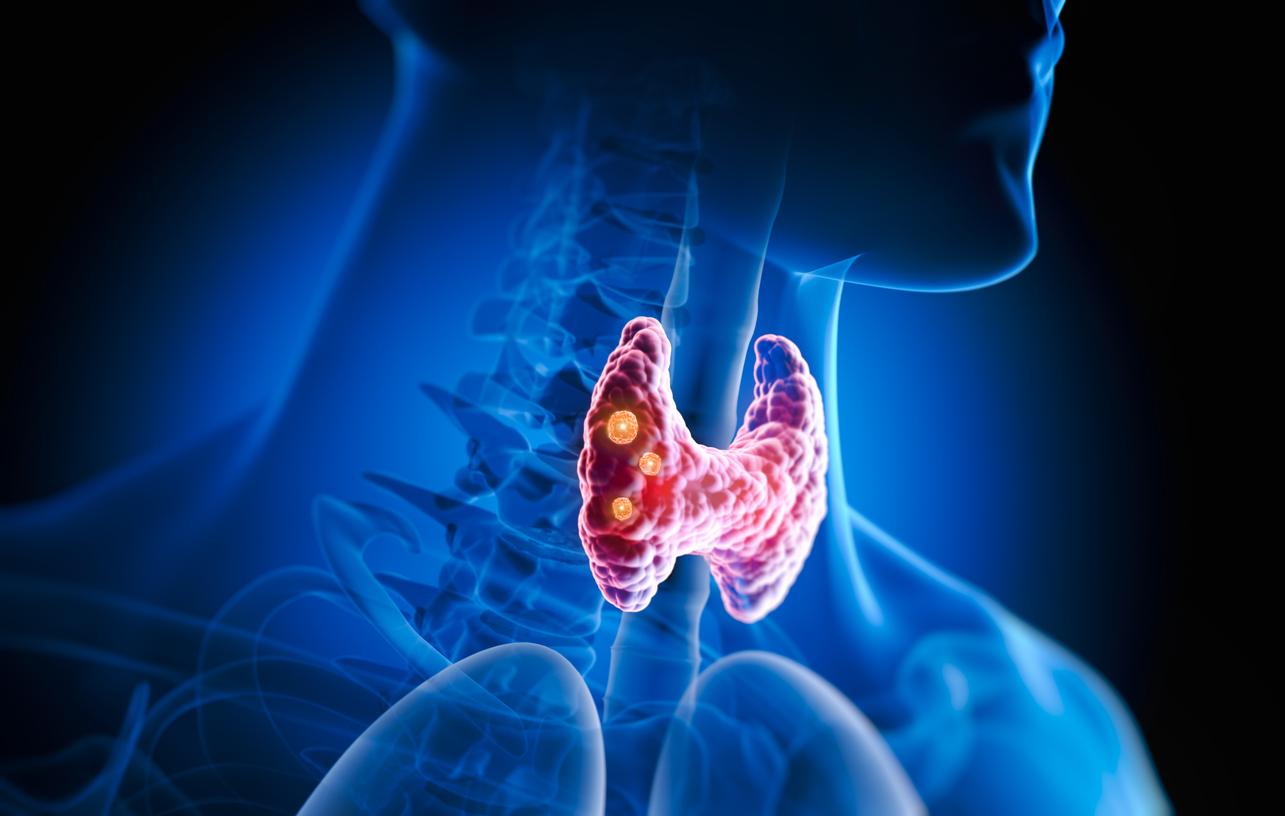Hyperthyroidism: what are the signs to spot?
“In general, what alerts patients is a weightlossor the fact that their weight remains curiously stable even though they have much more appetite than before”, explains Professor Laurence Leenhardt, endocrinologist at La Pitié Salpêtrière hospital in Paris.
Significant muscle fatigue on exertion, palpitations, sweats, irregular periods or the feeling of being hyperactive and nervous are symptoms that should lead to consultation. But in the case of Graves’ disease, the onset may be so insidious that the problem is not realized until later: 3 out of 4 patients then present with a soft goiter, bulging eyes, retracted eyelids and the unpleasant sensation of have sand in your eyes.
If hyperthyroidism occurs mainly between the ages of 30 and 40, it can take deceptive forms in the elderly, including men. “In the event of the appearance of a heart rhythm disorder orosteoporosis, it is necessary to think of checking the thyroid function “, says Professor Leenhardt.
What does the blood test say?
If the blood test reveals a TSH between 0.1 and 0.4 mU/L, we can think of a transient fluctuation or linked to another pathology such as the Depression but below 0.1, the diagnosis of hyperthyroidism is necessary. To know the intensity of the disorder, we dose the hormone T4. The higher the rate, the greater the hyperthyroidism.
Scintigraphy, the key examination
To undergo a scan, a very low dose of radioactive iodine is injected into a vein in the arm. After 2 to 3 hours, using a suitable camera, the location of the product in the thyroid is observed. If the butterfly shape is clear: the thyroid produces hormones from theradioactive iodine. Hyperthyroidism is therefore surely explained by Graves’ disease. If certain areas appear darker (hyper-fixating), toxic nodules have captured radioactive iodine to produce excess thyroid hormones.
In the news: it is now possible to obtain iodine tablets for free in pharmacies in Belgium.
Levothyrox scandal: a million patients would have abandoned the drug
Read also
Our file on the Levothyrox case
Ten key questions about thyroid disorders
Thyroid: increasingly precise examinations
Hyperthyroidism: what are the possible treatments?
















